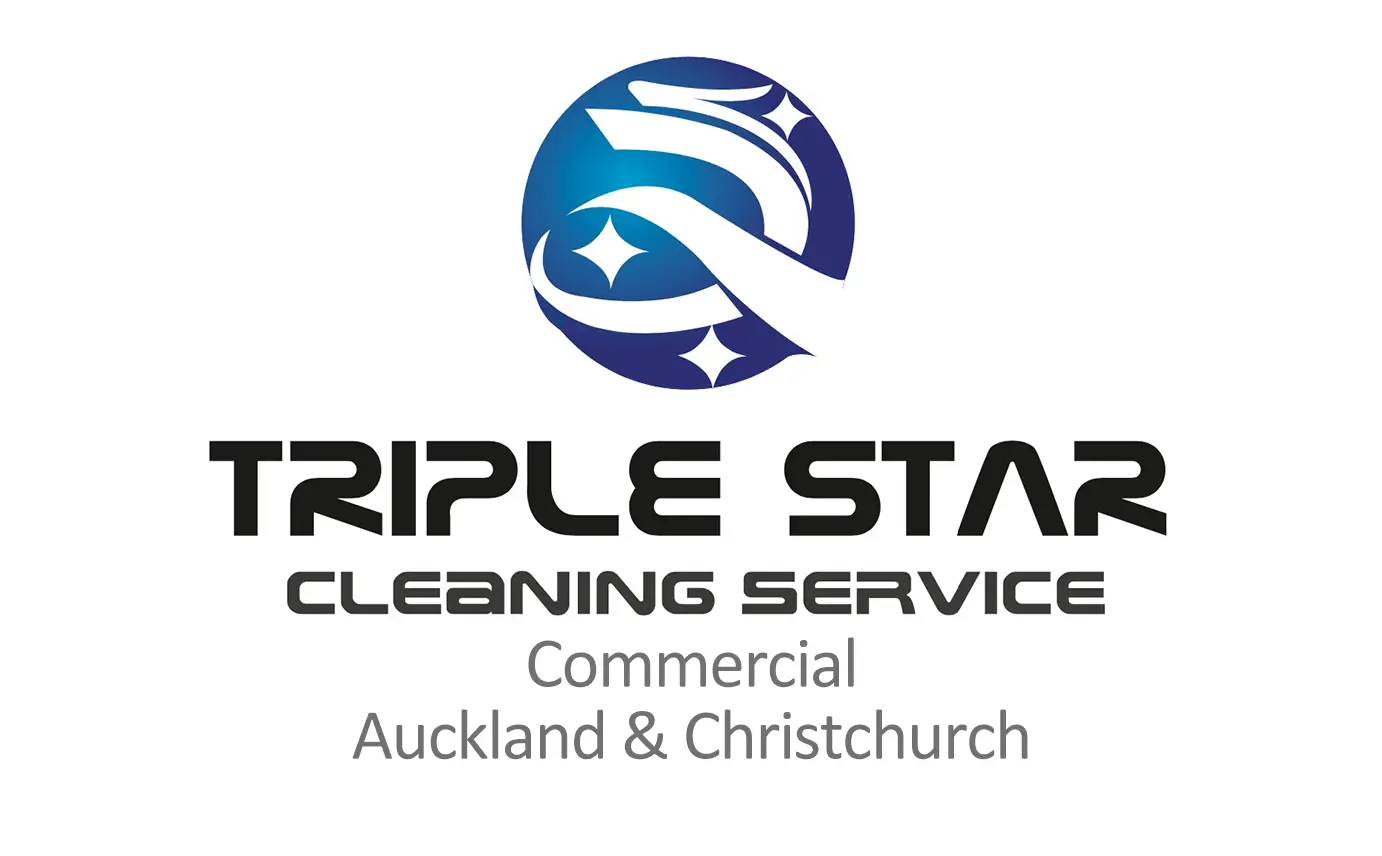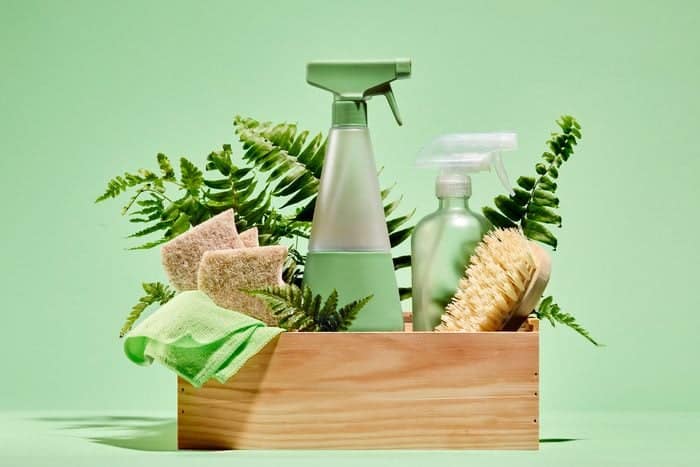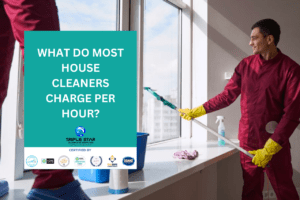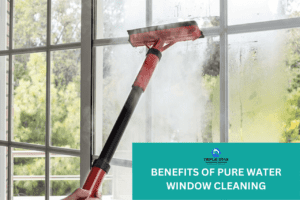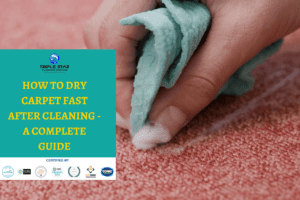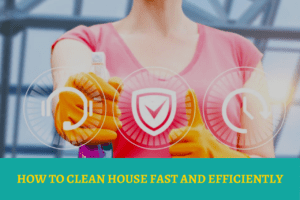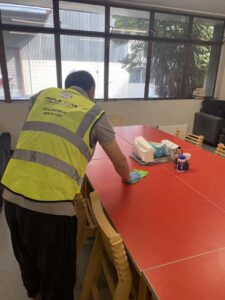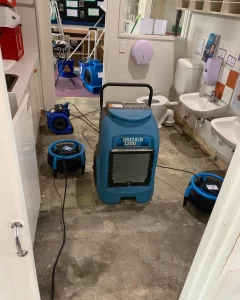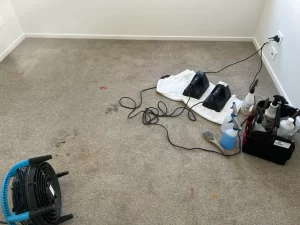As per a report from the American Lung Association, cleaning products put your health at a high risk of an allergic reaction, chronic respiratory, and headaches. I am talking about your regular aerosol spray, furniture polish, rug or oven cleaner, etc. Innocent air fresheners, detergents, and dishwashing liquids have also been made to the list.
Want an escape from these toxins? Switch to green cleaning.
Green cleaning indicates an effective cleaning product that is safer for humans and the environment while reducing waste and pollutants. For example, white vinegar, baking soda, lemons, etc. Switching to green cleaners reduces risks of diseases like asthma, skin or throat irritation, respiratory disease, cancer, etc.
Wait! Do green solutions work? This article will explore the best natural alternatives for synthetic cleaning chemicals.
Table of Contents
ToggleWhat Is Green Cleaning? A Brief Introduction
If I put it, green cleaning promotes a better future for humans, animals, and the planet earth. On an elaborative note, the term ‘Green’ in green cleaning implies 3 things,
- Products are all-natural, biodegradable, and safe, or
- Manufactured eco-friendly, safe for humans and the environment, or
- Producing less toxic waste and pollutants
Hence, you can only tag a cleaner green with the above features. Take the products with a fair trade label as examples. The label indicates that the manufacturers have maintained specific labor and environmental standards.
Likewise, the environmental label ensures that the product has EPA-approved chemicals only. For instance, low VOC (volatile organic compounds) or no VOC-contained cleaning agents qualify as green cleaners.
There is another controversial type of green cleaning product available in the market. It does include chemicals and additives. But the company does a generous charity every year to save the environment.
Green Cleaning Labels: A More Meaningful Insight

The labels and certificates on green cleaning products can confuse consumers. Sometimes, the terms sound redundant. But the United States Environmental Protection Agency (EPA) has made the standards and criteria very clear.
You have already encountered some labeling and certification terms in the previous section. I am including a few more so you do not get confused when purchasing.
| Cruelty-Free | Products are not tested on animals. |
| Natural | Cleaner elements are derived from natural sources. |
| Eco-Friendly | Everything related to the product, from production to consumer end, is safe for the environment. |
| Green | Products are safe for humans and the planet. |
| Non-Toxic | No toxic substances are used in the cleaners. |
| Green Seal | The product meets all safe health and environmental standards. |
| EcoLogo | Has a Less harmful impact on the environment because of the cleaners. |
Characteristics of Green Cleaning Products
You can not limit the green cleaning term to only a few characteristics. The products can be of various properties. Moreover, no cleaner must own all those features to qualify as a green cleaning washer.
The typically expected characteristics of green cleaning products are:
- Phosphate-free
- Chlorine-free
- Hypochlorite-free
- Non-toxic
- No dyes
- Zero artificial colors
- Biodegradable and sustainable
- Naturally extracted fragrance
- Recyclable packaging
- Bulk packaging ability
- Organic or natural
- No or low VOC
How “Green” Are Green Cleaners?
The green term often makes people think the cleaning product will be 100% natural and safe. But by now, you know that is not true.
Many products can carry a green cleaning label yet contain harsh chemicals. Again, manufacturing the products in an eco-friendly factory is also enough to get the green cleaning tag.
In short, green cleaners are any product that reduces pollution and waste in their weight. Moreover, the product must be less harmful to animals, humans, and the earth.
Why Green Cleaning?: A Head On With Traditional Cleaners
It may seem unrealistic to switch to green cleaning products. I mean, you have been using traditional cleaners for years without harm. So what is the urgency now?
Well, you are still with the chemical cleaners because you have no idea about the toxicity. Let me show you what these traditional cleaning products include and what they do to you,
1. Chlorine Bleach: Chlorine is essential in toilet cleaners, laundry whiteners, and mold removers. This chemical raises the risk of asthma and skin or respiratory irritation.
2. Ammonia: From your polishing agent to glass cleaner, all include ammonia. Though the gas is a natural by-product and safe to a level, a higher concentration of ammonia is poisonous. It can trigger asthma or related respiratory diseases.
3. Sodium Hydroxide: This solution often unblocks the drain clogs. Well, sodium hydroxide is safe as long as you apply this with gloves on and in a well-vented area. Exposure to the ingredient can cause skin irritation.
4. Phthalates: Any commercial cleaner, take dish soap as an example, is incomplete without fragrance. Phthalates are the ones responsible for such scent. Researchers suggest this chemical is an endocrine disruptor and can reduce sperm counts.
5. Volatile Organic Compound: Cleaners with VOC release a poisonous gas responsible for respiratory illness.
6. Triclosan: Manufacturers add triclosan to liquid dish soaps and dishwashers for antibacterial purposes. But the chemical acts as a hormone disruptor and promotes carcinogenic cell growth.
7. 2-Butoxyethanol: Found in all cleaner solvents and sprays, this chemical can cause severe liver and kidney damage.
Again, ingredients like Perc, ammonium compounds, NPEs, etc., harm the environment indirectly. The pollutants kill beneficial bacteria in the water stream and affect the animals’ lives in the river.
All these environmental and health hazards, all due to the traditional chemical cleaners. If switching to green cleaning can vanish these issues to an extent, why not?
13 Benefits of Green Cleaning: How Green Cleaners Ensure A Better Lifestyle and Eco-system?
The above section explains the terrible effects of traditional chemical cleaners. Compared to those, green cleaning is a blessing and offers many benefits. Some notable advantages are:
1. Safer & Better Option For the Environment
Neither a landfill with plastics nor a river dump with toxic chemical waste is good for the environment. While plastic reduces the fertility of the land, the chemicals make the river water impure. Similarly, the fumes of these toxins manipulate the hemisphere and lead to acid rain.
Luckily, green cleaning does promote non-toxic, eco-friendly, and biodegradable products. Thus, the environment is in safe hands.
2. No Compromise With Loved One’s Health
Do you know aerosol includes deadly preservatives combo of carcinogens, neurotoxins, xylene, and formaldehyde? More frequent sprays can cause vascular, respiratory, and brain diseases.
Wait! There is more to it. As per a 2018 study, house cleaning products have the same adverse effect on your lungs as 20 cigarettes.
The case is similar to more or less all house cleaning products. It means you and your loved ones are at risk. Switching the green cleaning insect and miticide sprays can save you from this health hazard.
3. You Are Contributing To A Bigger Cause
Many green cleaning brands donate a chunk of their profits to the betterment of a sustainable world. So, your small purchase will indirectly impact saving this planet.
4. A Healthier Home Ambient
While the adults can cope with the toxins, the babies and pets suffer badly. Hence, less use of traditional chemical cleaners means less home pollution. Moreover, avoiding those formulas will reduce the risk of asthma and other lung diseases.
5. A Small Pay To Save The World
The branded green cleaning products are a little expensive. Yet, the price is nothing considering the enormous positive impact that comes with it. However, you can cut costs by switching to homemade green cleaning solutions. I will talk about the alternatives in the later sections.
6. An Uplift In The Indoor Air Quality
The chemical cleaners use a pleasant synthetic fragrance to soothe our senses. But do you know these scents include VOCs and harmful particles? As a side effect, you can experience headaches and allergic reactions.
Well, these are not a concern with green cleaning products. It means better indoor air quality for your family.
7. Top-Notch Cleaning Experience
Using chemical formulas offers a strong cleaning experience. No question! I guarantee you the same cleaning efficiency as the green cleaners too! The green formulas do not compromise neatness while saving our health.
8. You Know What You’re Using
Green cleaning products have always been transparent about their ingredient lists. Thus, you can look at the label and packaging to see whether the formula suits you. It is a small but good initiative to avoid any health hazards for your family.
9. Less Water Pollution
All these chemical dumps run directly to the rivers and oceans, which circle back to our life in any way. The small percentage of contaminants may not seem harmful now. But in the near future, the degraded water quality will affect our drinking and day-to-day water experience.
10. Your Furniture Loves It!
The harsh chemicals often mess up your wooden or rare furniture collection’s texture, color, and finish. Using green cleaning instead will maintain the integrity of the furniture while ensuring cleanliness.
11. A Stronger Shield To Bacteria
Regular cleaners excel in germ cleaning. But sometimes, these cause skin irritation, hormone disruption, and breathing issues. The green cleaners, on the contrary, are gentle but include a substantial antibacterial property. For example, the star ingredients of these cleaning solutions are lemongrass, eucalyptus, tea tree, etc.
12. The Law Says So
The New York State Green Cleaning Law (Chapter 584 of the Laws of 2005) applies to all public and non-public elementary and secondary schools. The authority must use green cleaning products to maintain the institute’s hygiene. Due to less exposure to chemicals, the pupils are at a lower risk of getting sick. The law requires that all cleaning products used in these facilities meet specific environmental standards, including:
- Reduced toxicity: Cleaning products must have low levels of toxic substances, which can pollute the air and harm human health.
- Biodegradability: Cleaning products must be made from natural, biodegradable ingredients that won’t harm the environment when disposed of.
- Packaging: Packaging must be minimal and biodegradable, reducing the waste generated by the facility.
- Labeling: Cleaning products must be labeled with all relevant information, including their environmental impact and potential health risks.
By following these guidelines, the New York State Green Cleaning Law helps protect the health of students and staff in schools and other government facilities and reduces the negative impact of cleaning products on the environment and human beings.
13. Cost-effective
Green cleaning products can be cost-effective long-term as they are often more concentrated and require less quantity to clean than traditional cleaning products.
Switch To Green Cleaning Products Today! The Best Alternatives
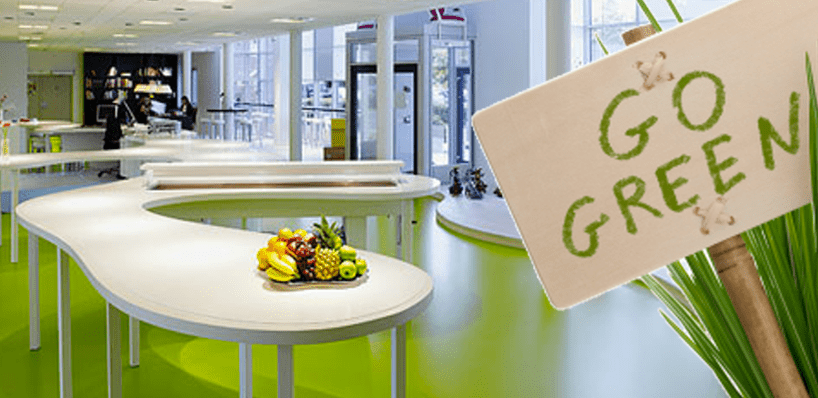
A green cleaning product must possess the same effectiveness as traditional cleaners with less harm. But is that even possible?
Well, yes and no!
Scientists have already approved different green cleaning agents for the same and practical home application.
On the contrary, green cleaning products can only remove germs from the surface. Therefore, the safety factor with these agents is still under debate.
The available and effective green cleaning for households are,
| Sink scrubber | Baking soda |
| Toilet cleaner | Borax or vinegar |
| Metal polish | Toothpaste |
| Fabric Softener | White vinegar |
| Glass sparkle | Vodka |
| Drain & Oven Cleaner | Vinegar, baking soda, or soda paste with dish soap, lemon juice, vinegar, and baking soda |
| Dish Cleaner | Washing soda, essential oil, grated soap |
| Laundry Cleaner | Phosphate-free detergent, washing soda, borax, bleach |
| Furniture Cleaner | Oil soap |
| Antibacterial Scrubbers | Liquid or non-detergent bar soaps |
| Pet Stain Cleaner | White vinegar |
| Fabric Softener | White vinegar |
| Sanitizer | Alcohol-based solution without triclosan |
| Tile or mold cleaner | borax |
| Floor Shining Cleaner | Vegetable oil-based soaps |
| All Cleaner Purpose | Vinegar, hot soapy water, oil soap |
| Kitchen Cleaner | Baking soda, vinegar, and essential oil |
| Air Freshener | Lemongrass or flower boiled in hot water |
| Refrigerator/ Carpet Deodorant | Baking soda |
Conclusion
This green cleaning concept is useless if you do not call to action. A small switch from chemicals to greenwashers will only make us and our environment healthier. And hey! The green cleaners are cost-effective, and you can DIY them at home. If you don’t have time to clean your house, let us do it for you; we (Triple Star Cleaning Service) are the best in this business. Happy cleaning.
